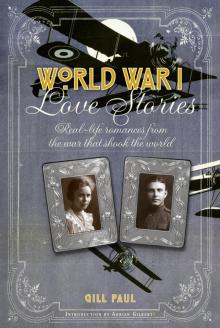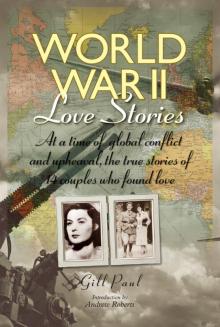The Lost Daughter Read online
Page 24
“I can’t tell you how sorry I am. I never dreamed this would happen. Peter was a wonderful man. I feel awful. Will you ever forgive me?”
Her voice droned on but Maria couldn’t raise her head from the pillow. She simply didn’t have the energy. She closed her eyes, and when she opened them again, Raisa had left and the room was empty.
Irina brought food on a tray but she couldn’t swallow more than a couple of mouthfuls of soup. At night she slept with her arms around Peter’s pillow and her head resting on his old sweater. In the early hours Yelena crept in to share the bed with her. No one asked her; she just slipped between the sheets, with her six-year-old’s firm body and steady breathing.
During the next days the children took turns to sit with Maria. Katya was withdrawn. Mikhail was sulky. Stepan was tired. Irina tried to hide her grief but her voice sounded fake and strained. Yelena was the easiest to be with because she gave hugs without trying to talk. All the children were in pain and Maria knew she should be comforting them. She could hear Peter’s voice in her head telling her she must be strong, but her body simply wouldn’t do it. It was as if she had been run over by a massive truck and none of her muscles worked anymore. Nothing worked except for her imagination, which played ghastly images in her head, like a never-ending horror film.
* * *
Two weeks passed and Maria forced herself to get up and dress for work. It was terrifying to consider getting out of bed, never mind going out into the world, but she was hoping that if she worked, they would be allowed to keep their apartment. The thought of moving was too much for her.
“I could leave the Institute and take a job at the factory,” Stepan offered. “You shouldn’t have to work. Not now.”
“No,” Maria insisted. “Your father was so proud that you were a student. You have to continue, for his sake.”
It was agonizing walking into the factory and picking up her tools. She couldn’t bear listening to the words of condolence and watching the pity on her fellow workers’ faces. She didn’t want to cry in front of them; crying was too personal, too painful. It was better to be alone with her grief. All she could manage was to put one foot in front of the other and keep busy.
At home, the older children helped with all the jobs Peter used to do. When the winter storms arrived and the windows rattled in their frames, Stepan found his father’s tools and nailed insulation around the edges. He took charge of cleaning the grate and tending the fire, while Irina went to line up for food after she finished school, then helped with the cooking. They were a functioning team, but the heart had gone.
At least no notifications were received asking them to move, although they had only been given the apartment because Peter was a shock worker; perhaps someone had taken pity on them. Maria came straight home after work each day, and refused to answer the door, to see friends, or to help anyone who came to consult her missing persons’ register. Irina took over that role, noting down the addresses of the few who stopped by and passing on details of possible matches.
One Sunday in March, when the hours of daylight were starting to lengthen, Stepan tried to persuade Maria to come on what had been a traditional family outing.
“Remember how Papa used to love watching the ice on the Fontanka cracking? Let’s go and stand on the Panteleimon Bridge. We can light candles for him.”
Maria hesitated at first. It didn’t seem fair to go without Peter, but the children were keen. Yelena tugged on her skirt, crying, “Please, Mama, please.”
Maria pulled on her snow boots and warm coat, made sure the little ones were wrapped up warmly, then held Yelena and Mikhail’s hands as they trudged to the bridge through streets with gray slush heaped in the gutters.
Fracture lines had formed across the inches-thick ice on the river, and in one section, geometrical chunks were breaking away: parallelograms, triangles, trapezoids. Underneath, the water was dark and impenetrable. Maria leaned on the elegant gilt railing and took the candle Irina handed her. Everywhere there were memories. Peter used to entertain them by imitating the otherworldly cracking sounds the ice made with a strange gurgling noise in his throat. Maria remembered teasing him that he sounded more like a duck.
She fixed her eyes on a spot where there was a hole in the ice, just below the bridge. If she climbed onto the railing and jumped quickly, she would disappear before they could stop her. It was an enticing thought, but she knew she wouldn’t do it. Instead she put her arm around Katya and murmured a panikhida. The children gathered around, listening to the unfamiliar words, gazing at her face. She shivered when she thought that if it hadn’t been for them, there was no question that she would have taken her own life and followed Peter to the grave.
* * *
When they got back to the apartment, there was a letter slipped under the door with Maria’s name on it. She opened it and saw it was a handwritten note; the signature read Yuri Koshelev. Annushka’s husband.
I’m sorry I was not able to help your husband, it said, and extend my deepest condolences. There is another matter on which I need to speak with you urgently. I will call on you very soon.
Maria was baffled by this, and alarmed. Was she about to be arrested and he had come to warn her? She had refused to admit to “lack of vigilance,” as her older children had done, even though she knew Peter would have urged her to. Should she pack her bags and flee? She did not have the energy. Whatever happened next, she would just have to endure. Even if it led to her death.
Chapter 38
Leningrad, March 1938
WHEN MARIA TURNED INTO HER ROAD ON THE WAY home from the factory one evening and saw a black NKVD van parked outside her apartment block, she considered running in the other direction. But she couldn’t; Irina would already be at home with the younger children and she had to protect them.
She walked on, feet dragging, her throat tight with fear. As she neared the van, the front passenger door swung open, and a man’s voice said, “Get in. Quickly, before anyone sees you.”
She glanced inside and saw Yuri, Annushka’s husband. There were no other officers in the front of the van but she couldn’t see into the dreaded back section. She was petrified but had no choice. She lowered herself into the seat and pulled the door shut.
Yuri switched on the engine and drove down the road without a word.
“Where are you taking me?” she asked, trying to control the tremor in her voice, clasping her hands in her lap so he wouldn’t see them shaking.
“To a quiet street nearby. I thought it best your neighbors don’t see me talking to you.” He gave her a quick look.
That was strange. Why would he worry what her neighbors thought? They would already assume she had turned informer after Peter’s death in order to escape arrest herself. Maybe that was what Yuri wanted to talk to her about; perhaps he was going to ask her to inform on her neighbors or work colleagues. She would refuse; she had long ago decided she would never inform on anyone.
Yuri pulled up in a dark road with a park on one side, warehouses on the other, and lit a cigarette. The name on the packet was Belomorkanal, a brand created to commemorate the construction of a canal linking the White Sea to the Baltic. He offered her one as an afterthought, but she shook her head.
“I wanted to tell you how sorry I was about your husband,” he began. “I never met him personally but I know he had a spotless record and I can’t understand why the troika reached the decision they did.”
He drew deeply on his cigarette and Maria turned her head. The harsh smell of smoke in the enclosed space was nauseating.
“I found out that he is buried in the Preobrazhenskoe Cemetery. There is a mass grave in the southeast corner. At least you can go there to pay your respects.”
Maria closed her eyes so he wouldn’t see how much that information meant to her. “Thank you,” she said.
“You must be wondering why I brought you here,” he continued, and she waited. “It’s not official business. I need your help, as it
turns out. Annushka has disappeared with my son and I can’t find them. I thought, with your contacts, you might have some idea where she has gone.”
Maria frowned. “I haven’t seen Annushka since I visited your apartment last October. We used to meet in the bread line but my daughter fetches our bread now. I don’t know how I can help.”
“And yet . . . with your files of missing people, I thought perhaps you might find a way. Her parents and her brother say they haven’t heard from her, but she must be somewhere.”
Maria chose her words carefully. “Did anything happen before she left?”
He shrugged, and wound down the window to throw the cigarette butt into the road. A blast of icy air swirled in. “We had a row, but all couples row. You and Peter must have rowed.”
Maria didn’t tell him that they never had, not once in nineteen years. When they disagreed, they talked about it until they reached a solution. “I’ll ask around and see if I can discover anything,” she promised. “But don’t get your hopes up. As I said, it’s a long time since I’ve seen her.”
Yuri dropped her at the end of her road and she walked home, lost in thought. There was no doubt in her mind that Annushka must have left him and wouldn’t want to be found. She would have to handle the situation very carefully so as not to make an enemy of Yuri. Meanwhile, she couldn’t wait to go to the Preobrazhenskoe Cemetery and visit Peter’s grave. She would disregard all the other people buried in there with him and pretend they were alone once more, just the two of them.
* * *
The very next day, as soon as she finished work, Maria made her way to the cemetery, picking some early snowdrops from a park since the florists’ shops were closed. She hesitated at the entrance gate; the cemetery was divided into Orthodox and Jewish sections, and she assumed Peter’s grave must be in the Orthodox side. She walked past grand memorials in ornately carved stone to the southeast corner. There, just inside the boundary wall, she saw a patch of ground where the earth was bare, around twenty feet long by fifteen wide. It was marked with a simple wooden sign: Enemies of the state. This must be it. She fell to her knees on the wet grass.
“Peter,” she whispered out loud. “I’m sorry it took me so long to find you. They wouldn’t tell me . . .” She stopped. He didn’t need to know that. She took a deep breath. “I miss you terribly, my love. I still can’t believe it.” Tears were coming now and she didn’t want to cry. She wanted to show him she was being brave. She gulped, staying very still until she had controlled herself, then continued. “The children are fine. Stepan and Irina have grown up a lot. We all miss you. But we are safe. Peter, I tried so hard to save you. I hope you know that.”
A woman appeared in the half-light and knelt beside the same grave, a respectful distance away. She bent her head and stayed very still.
Maria did not speak out loud again, but sat silent with her thoughts, hoping Peter could read them, wherever his soul might be. The earth was still hard from winter. His body would have been preserved by the freezing temperatures. She imagined he would still look like himself, strong and sturdy, with his compassionate gray eyes and cowlick hair. If only she could dig him up and kiss him one more time. The yearning was overwhelming.
She became aware of a low keening sound coming from the other woman. She rose, brushing the mud from her skirt, and walked across to lay a hand on her shoulder.
“I suppose we are in the same boat,” she said gently. “Is your husband also buried here?”
The woman nodded and squeezed Maria’s hand quickly, in a gesture of solidarity. “He was executed in November and now my only son has disappeared and they won’t tell me where he is.”
Maria sat on the grass beside her. “Was he taken by the NKVD?” she asked.
“I think so, but they will not give me any information. It’s been two weeks and nothing.”
Maria felt relieved that at least her children were safe. This woman’s suffering was worse than hers. She wondered if she might be able to get Yuri to help, since he wanted a favor from her.
“I may have a contact who can make inquiries,” she said. “Don’t get your hopes up, but I will see what I can find out.” She noticed an expression of suspicion flit across the woman’s face. “Of course, there’s no reason why you should trust me, but what harm can it do to give me your son’s name? I will either find out where he is or I won’t. It surely can’t make things any worse.”
The woman considered this for a moment, then told Maria her son’s name and the address from which he had been taken.
“I’ll return here at this time next week and let you know if I have discovered anything,” Maria promised.
* * *
She had agreed to meet Yuri in the same quiet side road on her way home from work a couple of days hence. As she climbed into the van, she felt a frisson of terror. How many people had been beaten senseless or even killed in the back? What had Peter been thinking as he was driven away in such a van?
“Is there any news?” Yuri asked quickly.
Maria shook her head. “Not yet, but I have made inquiries. You must be patient.”
He sighed deeply. “She does not have any money or coupons with her. How can she be feeding our son? I hope . . .” He bit his lip and did not finish the sentence.
“Annushka seemed a good mother. I’m sure your son is safe.”
He nodded. “Will you meet me again in a few days? Say Monday? In case there is any word?”
“All right,” Maria agreed, steeling herself for what she would ask next. “But I need a favor from you too. Can you find out what is happening to this boy, who has been arrested by the NKVD?” She held out a piece of paper with the name and address written on it. “His mother is distraught because no one will tell her anything. You for one must understand what that feels like.”
She caught his eye. He wasn’t pleased, but he took the piece of paper, looked at it quickly, and put it in his top pocket.
“I hope when I see you next that we will both have news,” he said curtly.
“Me too. Till then.” Maria opened the door and got out of the van. She didn’t trust Yuri, but as long as he thought she might find his wife and son, he could be useful. It was a dangerous strategy, like dicing with the devil, but she felt it was the right thing to do. Something Peter once said came back to her: “If you can help someone without harming anyone else, then why on earth wouldn’t you do it?”
* * *
Maria took the children to visit their father’s grave the following Sunday afternoon. It was a warm day for March. Lone birds were chirruping and the pistachio-green cones of still-furled leaves were sprouting on bare branches. They took bread with potted cheese and cold meats, fruit pastila, homemade kvass and cups to drink it from, as well as a bunch of colorful spring blooms to lay on the grave. The children were quiet when they arrived, upset to see the lack of respect for the men tossed into this muddy earth. Maria spread a blanket on the grass and laid out the food and drink, all the while talking to Peter in her head.
We’re here, she told him. I brought them so you can see they are all right. Look how Mikhail has grown. I think he will be tall one day. And Stepan is turning into a man. Do you see his whiskers? He did not shave this morning.
They sat down and began to eat, and soon they were talking about Peter, sharing memories of him.
“Do you remember the funny noise he made when he sneezed?” Irina asked. “It sounded like a-chi-chi-bo.”
Maria smiled at her imitation.
“He could never find his key in the morning,” Katya said. “I couldn’t understand why he didn’t just put it in the same place every evening when he came home.”
“He wasn’t organized that way,” Maria explained. “He came from the countryside where no one locks their doors.”
“I have never heard anyone whistle as well as he did,” Stepan said. “I tried to learn, but I could never produce a sound so pure and tuneful.”
Mikhail whistled a bar o
f “Slavianka,” a tune Peter used to whistle, and for a moment it almost sounded as if he was there with them.
Suddenly Maria realized that Peter hadn’t gone. He lived on in these five children, different bits in each. As long as they remembered and talked about him, they would keep his memory alive. It wasn’t the same as having him there, and never would be. But if she could come to his grave and talk to him, and keep his children around her, then she would find a way to carry on. She had no choice.
Chapter 39
Leningrad, April 1938
MARIA SAW THE WOMAN APPROACHING THROUGH THE dusk, and beckoned her over.
“Do you have news?” the woman asked without any greeting, desperate to learn her son’s fate.
“He is alive,” Maria began, knowing that was the information she would want to hear first. “But he has been sentenced to five years in a gulag in Kemerovo.”
The woman began to wail. “But why? What has he done?”
“I’m so sorry.” Maria put a hand on her arm. “I don’t know what he was convicted of, but my informant said conditions there are not too bad. The men are mining coal, but they are well fed. And five years is much shorter than the average sentence.”
“Mining coal . . .” The woman couldn’t stop crying. “He is a clever boy. He had a bright future.”
“He still does. Five years will pass, and you can write and send packages. I have the address for you.” Maria found a scrap of paper in her bag and handed it over.
The woman read it. “Thank you,” she said, sniffing back her tears. “I will write tonight and send some warm clothes. At least I can do that. But five years . . .” She shook her head. “What kind of state would do this to their young men?”
Maria didn’t reply. Criticizing the government to a stranger was a fool’s game. She could understand the woman’s anger. If she let herself think of the men who had sentenced Peter to death, and the ones who had carried out the sentence, her own fury threatened to overwhelm her, but it could serve no purpose. She couldn’t attack the state or their “great leader,” Stalin. Best to keep quiet, look after her children, and get on with her own life.

 The Collector's Daughter
The Collector's Daughter The Lost Daughter
The Lost Daughter Jackie and Maria
Jackie and Maria The Affair
The Affair Love...Maybe
Love...Maybe The Secret Wife
The Secret Wife No Place For a Lady
No Place For a Lady Another Woman’s Husband
Another Woman’s Husband World War I Love Stories
World War I Love Stories World War II Love Stories
World War II Love Stories